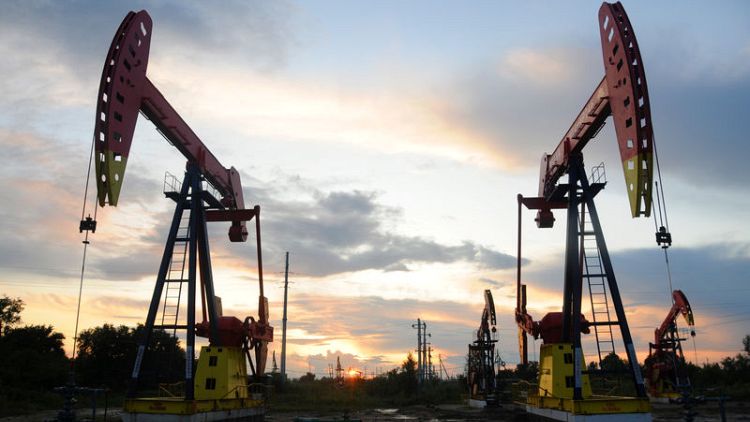TOKYO (Reuters) - Oil prices rose on Wednesday after an industry report showed that crude stockpiles in the U.S. fell last week by more than twice the amount that analysts had forecast.
Brent crude futures <LCOc1> rose 43 cents, or 0.7%, to $62.81 a barrel by 0053 GMT, while WTI futures were up 47 cents, or 0.8%, to $57.87 a barrel.
Prices had ended lower on Tuesday, squeezed by speculation of a return of sanctions-hit Iranian crude exports to the market following United States President Donald Trump's move to fire national security adviser John Bolton, a noted Iran policy hawk.
But they rebounded after American Petroleum Institute (API) data released late on Tuesday showed U.S. crude and gasoline stocks fell last week, while distillate stocks built.
"The U.S. hasn't changed its tune yet (on Iran) and the Saudis are really trying to tighten inventories," said Greg McKenna, strategist at McKenna Macro. "Just look at the API draw this morning – another 7 million plus (barrels) drawdown."
The API numbers showed crude inventories fell by 7.2 million barrels in the week ended Sept. 6 to 421.9 million, compared with analysts' expectations of a decrease of 2.7 million barrels. [API/S]
Crude stocks at the Cushing, Oklahoma, delivery hub fell by 1.4 million barrels, the API said, while refinery crude runs rose by 208,000 barrels per day.
Meanwhile gasoline stocks fell by 4.5 million barrels, compared with analysts' expectations of a 847,000-barrel decline in a Reuters poll.
Prices had risen sharply before Bolton's removal, boosted after Prince Abdulaziz bin Salman, Saudi Arabia's new energy minister, said the kingdom's policy would not change and a deal with other producers to cut oil output by 1.2 million barrels per day would be maintained.
Iran's crude oil exports were slashed by more than 80% due to re-imposed sanctions by the United States after Trump exited last year Iran's 2015 nuclear deal with world powers.
(Reporting by Aaron Sheldrick; Editing by Kenneth Maxwell)



